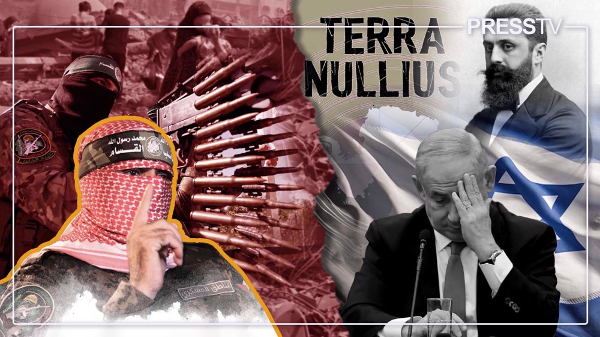image1
By Xavier Villar
More than 75 years after the establishment of the Zionist colonial entity, Palestinians continue to struggle and resist to reclaim their lands and to end the brutal occupation and aggression.
From a discursive perspective, the Israeli regime seeks to justify its colonial occupation using terms that the Western world can assimilate and comprehend, as that’s where the Zionist imaginary persists.
In other words, Zionism, like any colonial project, needs to justify its endeavor in terms of civilization.
In this context, one may recall the words of Theodor Herzl, the Austro-Hungarian founder of the Zionist movement, who in 1896 was the first to describe the future colony as "a bastion of Europe against Asia, an outpost of civilization against barbarism".
Chaim Weizmann, the leader of the Zionist Organization, described Palestinians in 1936 as ’the forces of destruction, the forces of the desert,’ and Jewish settlers as "the forces of civilization and construction."
This civilizational justification equally reveals that since its establishment, the Zionist entity has crafted its narrative based on the colonial idea of eliminating the native Palestinians.
The words of the Zionist leader Golda Meir, ’There were no such thing as Palestinians... They did not exist,’ clearly reflects the Zionist colonial project to erase and eliminate not only the physical presence of Palestinians but also their collective memory.
The Zionist entity has attempted, by all means, to make the colonial myth of ’terra nullius’ a reality - a land that can be colonized and occupied because it is ’empty’ but all such attempts have failed.
The legal concept of ’terra nullius’ was invoked by British colonizers while occupying Australia.
In the Zionist case, it can be asserted that the project of eliminating the native society was present from the moments preceding the foundation of the illegitimate entity.
Between November 30, 1947, and May 14, 1948, over 400,000 Palestinians were displaced from their homes. In December 1948, another 350,000 suffered the same fate.
Historian Patrick Wolfe explains: "Settler colonies were based (and are based) on the elimination of native societies... Colonizers come to stay: invasion is more than an event, it’s a structure."
The elimination of the native Palestinian society marks the foundational moment of the Zionist entity. Therefore, it can be said that if every foundational act is marked by original violence, in the Zionist case, this act can be read as a hyper-foundation.
In other words, as in every colonial foundational act, the Zionist entity is based on violence that never ceases to be present daily, without this original violence ever being integrated into normality.
Unlike the viewpoint advocated by various contemporary theorists, particularly Italian Giorgio Agamben, regarding the existence of legal normality that is suspended in specific moments known as the state of exception, the colonial situation, both in Palestine and elsewhere, allows for two conclusions to be drawn.
1. Not all bodies are susceptible to experiencing this exceptionality, as it shows a predilection for bodies identified as non-white.
2. The supposed exceptionality Agamben speaks of becomes the norm in colonial settings, as with Zionism.
In the Palestinian context, the norm has been the implementation of constant and daily violence even before the establishment of the Zionist entity more than seven decades ago.
There has been no suspension of legal normality in Palestine, as violence, always driven by the colonial goal of eliminating the physical and political presence of the native society, has been a constant there.
However, if the primary goal of the Zionist entity is the elimination of the native population, it’s evident that it has failed. In other words, the Israeli regime presents itself as a failed colonial project
In Palestine, the native society has not been eliminated despite continuous attempts to achieve it. The natives persist and have shown resilience. Those Palestinians who have managed to remain in historic Palestine, despite constant efforts to dispossess them, continue to resist any attempt at elimination.
Those Palestinians who have managed to remain in historic Palestine, despite incessant efforts to expel them, continue to resist their elimination.
Palestinians have not forgotten, they have not departed, and the memory of Palestine has not been erased despite strenuous efforts by the West-backed illegitimate regime.
The attempts to achieve that elimination are manifold and converge to turn Palestine into a ’terra nullius.’ Among these diverse elimination strategies, on the one hand, stands out the ethnic cleansing of Palestinians, and on the other hand, a new ideological vision promoted by certain Zionist groups that consider themselves ’natives’ and justify Zionism from an alleged decolonial perspective.
These two pathways, aiming for the physical as well as ideological elimination of Palestinians, have failed miserably.
The first step to dismantling any settler colonial regime is to interrupt the logic of eliminating indigenous peoples. This is something that Palestinian resistance groups are clear about and is, in part, what guides their struggle and resistance against the colonial entity.
As long as there is resistance, the colonial project will never succeed.
Xavier Villar is a Ph.D. in Islamic Studies and researcher based in Spain.











